Have you heard about the Korean fan death myth? Are you worried about whether or not your fan may be trying to kill you? Want to know how to protect yourself and your loved ones from the silent killer that is fan death? Then you’re in the right place. In this article I’m going to delve into the Korean superstition of fan death.
Fan death is responsible for many a sweaty night during hot Korean summers and has been blamed for more than a few cold-blooded murders over the years. This is a serious issue in Korea and some people straight up refuse to use an electric fan at night because of the dangers they believe the pose. The media has done its best to fan people’s fears each summer, too.
Why do Koreans believe their fan might kill them? I’ll cover all of that, and more, right here. I’ll also offer a few cultural (and maybe comic) insights into how this myth developed and hopefully give you the answers you need to sleep soundly at night. Or maybe give you a few nightmares of murderous home appliances?
Affiliate Disclaimer: This site contains affiliate links and I may earn commission for purchases made after clicking these links.
What Is The Korean Fan Death Myth?
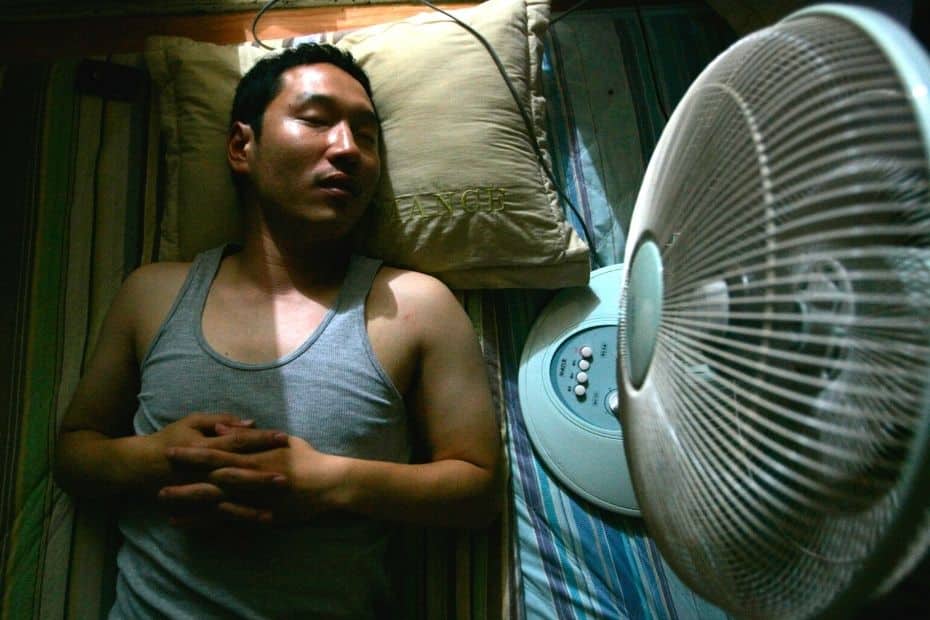
I hope you have a cup of tea handy and maybe a blanket to hide behind. It’s time to learn the tale of one of Korea’s most notorious killers – the electric fan!
What is Korean fan death and how did it all get started? Is there any scientific evidence behind the myth of fan death and the apparent deaths of innocent Koreans looking to stay cool? How can you stay safe from Korean fan death? The Korean fan death myth is quite simple. When you sleep at night with an electric fan running, you might not wake up again in the morning. The fan will silently kill you!
Death by fan.
Mors certa, hora incerta, as the Latin speaking Koreans may quip – death is certain, its hour is uncertain. It would probably be about 4 a.m. on a hot summer’s night, though. Korean summers are horribly hot and many people use air conditioners or electric fans to keep their bedrooms cool.
They should probably read my guide to Surviving Korean Summer, to be honest.
The misconception that fans are lethal ne’er-do-wells has been around since the introduction of the first electric fans to Korea in the 1920’s. Since then, stories of asphyxiation, face paralysis, and nausea have been repeated by the media and by the general public ad nauseam until the myth has seemingly become fact.
The media, bless them and their love for the truth, keep the myth alive by placing a few stories each summer telling the sad tale of another lost soul who has succumbed to the terror of Korean fan death.
One such story (of many) is this one in The Korea Herald:
“A man reportedly died on Monday morning after sleeping with an electric fan running. The 59-year-old victim, only known by his surname Min, was found dead with the fan fixed directly at him.”
The Korea Herald, July 2011
No evidence, apart from the obvious culprit mentioned in the story. Stories like these only help exacerbate the fear of fans and keep this curious urban legend alive in Korea. Thanks to stories like this, fans in Korea are now sold with warnings on them and every one has a timer as a ‘life-saving feature’.
I was even cautioned about the risk of Korean fan death in the EPIK orientation when I started Teaching English in Korea. If it’s in the orientation, it must be serious!
Please note: this is a real myth, but I may use a bit of sarcasm and silliness in my writing. Whilst I may be poking fun at this aspect of Korean culture, I have a lot of love for Korea and Korean culture. You can see that in my other Korean culture articles.
A Bit About Korean Homes
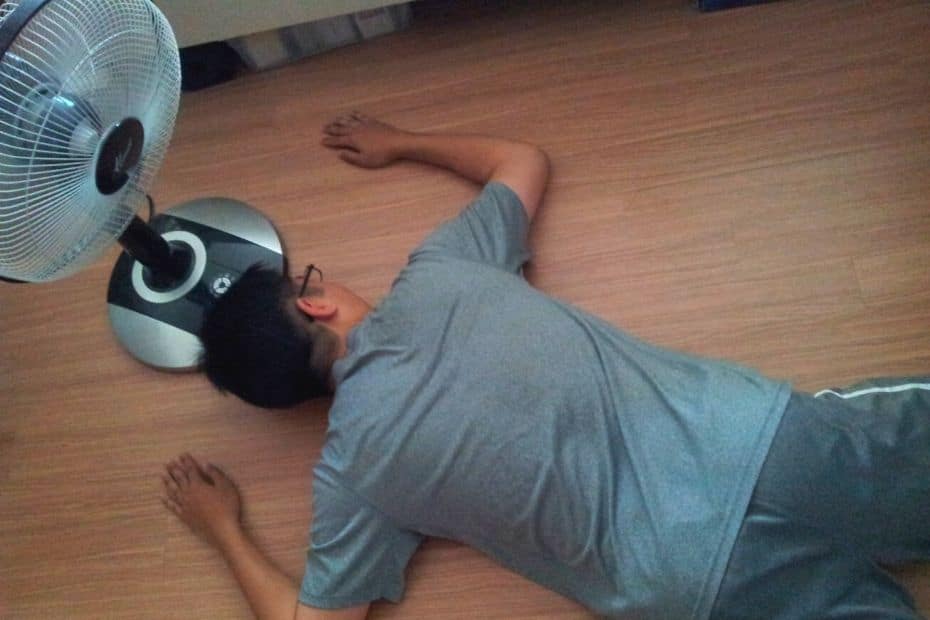
In case you’re not familiar with Korean homes, let me introduce some of the basic features of modern Korean accommodation.
Many people live in quite cosy (small) apartments with not-that-great ventilation. Some are single-room apartments, others have a few rooms but are a far cry from the two-storey houses that I’m used to in England.
The tall tower blocks don’t ventilate that well due to the small windows that don’t open wide. Air-flow is a real issue. That’s one of the reasons I leave my doors and windows open during the day when I’m home. They also tend to get very cold in winter and hot in summer due to a lack of proper double glazing and insulation.
Korean summers are HOT! It’s often above 20 degrees at night and never really cools down. Korean houses need to somehow mitigate both the heat and the cold (and yet don’t really do either).
I know there are many tropical places that probably suffer from the heat, too. However, when you go from a sweaty Korean summer to a frigid Korean winter in just a couple of months, with winter nights as cold as -15 Celsius, it’s hard to adapt to either condition.
In modern Korea, most houses have air conditioning units to keep them cool. However, with few natural resources, Korean electricity is really expensive and running the air-con during summer can cost an arm and a leg. That’s why some prefer to run an electric fan instead.
But that comes with its own dangers…
Planning to visit Korea? These travel essentials will help you plan your trip, get the best deals, and save you time and money before and during your Korean adventure.
Visas & K-ETA: Some travellers to Korea need a Tourist Visa, but most can travel with a Korean Electronic Travel Authorisation (K-ETA). Currently 22 Countries don’t need either one.
How To Stay Connected: Pre-order a Korean Sim Card or a WiFi Router to collect on-arrival at Incheon Airport (desks open 24-hours). Alternatively, download a Korean eSIM for you travels.
Where To Stay: For Seoul, I recommend Myeongdong (convenient), Hongdae (cool culture) or Gangnam (shopping). For Busan, Haeundae (Beach) or Seomyeon (Downtown).
Incheon Airport To Seoul: Take the Airport Express (AREX) to Seoul Station or a Limo Bus across Seoul. Book an Incheon Airport Private Transfer and relax to or from the airport.
Korean Tour Operators: Tour companies that have a big presence in Korea include Klook, Trazy, Viator, and Get Your Guide. These sites offer discounted entry tickets for top attractions.
Seoul City Passes: Visit Seoul’s top attractions for free with a Discover Seoul Pass or Go City Seoul Pass. These passes are great for families and couples visiting Seoul – you can save lots.
How To Get Around: For public transport, grab a T-Money Card. Save money on Korea’s high speed trains with a Korea Rail Pass. To see more of Korea, there are many Rental Car Options.
Travel Money: Use money exchanges near Myeongdong and Hongdae subway stations for the best exchange rates. Order a Wise Card or WOWPASS to pay by card across Korea.
Flights To Korea: I use flight comparison sites such as Expedia and Skyscanner to find the best flights to Korea from any country. Air Asia is a good option for budget flights from Asia.
How To Learn Korean: The language course from 90 Day Korean or Korean Class 101 both have well-structured lessons and lots of useful resources to help you learn Korean.
How The Korean Fan Death Myth Started
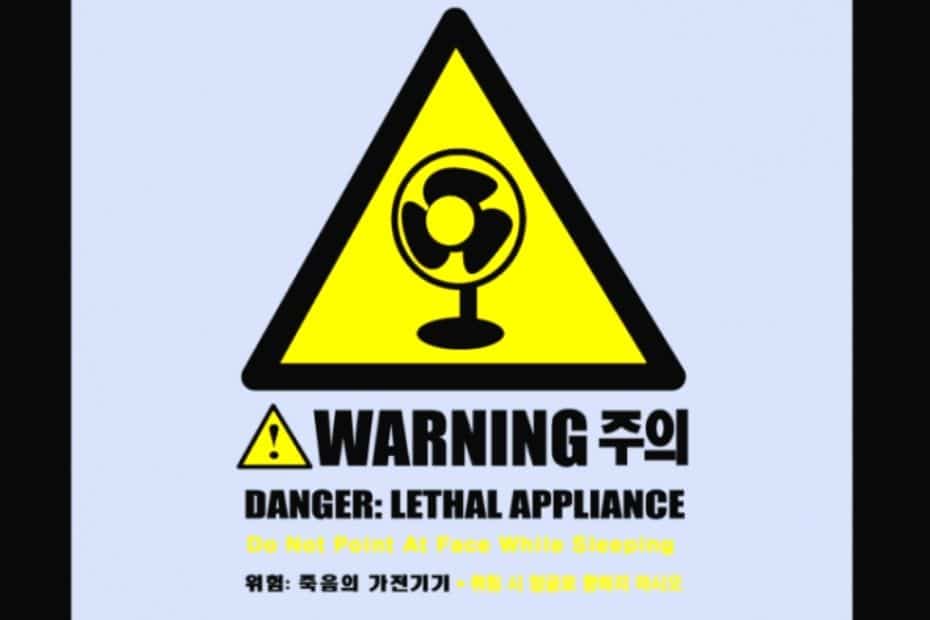
I’ve talked to several Koreans and they’ve all repeated the same idea – fans can (will) kill you. Everyone seems to remember a story they heard of someone dying from a fan some time in the past, but no one can actually give any details, aside from the obvious cause of death.
The electric fan did it. Guilty as charged!
As mentioned, electric fans and fan death have been around in Korea since the 1920s. Korean people have endured a hundred years of murder and mayhem. This new technology, as with all things new and complicated, was received with skepticism and warnings of potential dangers. Just as 5G technology is apparently giving everyone a coronavirus, fans were suspected of causing nausea, asphyxiation, and even death.
The Korean government went so far as to issue this life-saving warning about electric fans in 2006:
“If bodies are exposed to electric fans or air conditioners for too long, it causes [the] bodies to lose water and [causes] hypothermia. If directly in contact with [air current from] a fan, this could lead to death from [an] increase of carbon dioxide saturation concentration [sic] and decrease of oxygen concentration. The risks are higher for the elderly and patients with respiratory problems. From 2003 [to] 2005, a total of 20 cases were reported through the CISS involving asphyxiations caused by leaving electric fans and air conditioners on while sleeping. To prevent asphyxiation, timers should be set, wind direction should be rotated, and doors should be left open.”
So what about the science behind the Korean fan death myth? Is there any evidence that these unfortunate fatalities were caused by the cooling breeze of a friendly fan? Here’s a few of the common theories about fan death and the science behind them.
The Science Behind Korean Fan Death

Here are the 4 main ‘scientific’ explanations for Korean fan death and why running an electric fan at night might be the last thing you do.
Please note: none of these have conclusively been proven with scientific evidence and any fan (sorry) of science will know that some of these are quite improbable.
1: Hypothermia
Hypothermia occurs when your body temperature drops below a safe level, usually caused by inadequate temperature control. Your body slows its natural metabolic rate while it sleeps at night, making people more sensitive to temperature, which explains why you might suddenly wake up if there’s a cold breeze in the night.
Fans are intended to cool your body down in the sweltering summer heat, a task that is praiseworthy in these highly humid summer days where it can get up to 25 degrees at night. People believe that fans operating in a closed room can cool your body so much that it causes hypothermia, thus helping you to shuffle off this mortal coil.
Sadly, scientists have pointed out that fans aren’t really capable of doing this and the reduction in body heat is negligible at best. It would require a drop of 10 degrees or so to cause hypothermia. Fans barely do enough to cool me down as it is! However, some sources believe that those with existing conditions, such as heart problems of alcoholism, may suffer more from a drop in temperature at night. This exacerbates their existing conditions and causes death.
2: Hyperthermia (Heat Stress)
Hyperthermia (heat stress) is quite the opposite of being chilled to death by a fan with hypothermia. This cause of death occurs as the electric fan causes you to warm up when air warmer than your body temperature is blown directly at you, placing additional stress on your body to cool down and causing heat exhaustion.
This is the most probable cause of fan death, as there’s a lot of warm air in the room at night in Korea. After all, the reason we risk using fans at night is they create cool air to keep us snug and not too hot. But with our bodies having an average temperature of 37 degrees, the air in the room would have to be higher than that.
The American Environmental Protection Agency (EPA) has issued warnings about sleeping with electric fans in closed rooms when there is no ventilation. However, the EPA also says that using a fan is fine as long as you open the window and it’s cooler outside than inside.
3: Asphyxiation
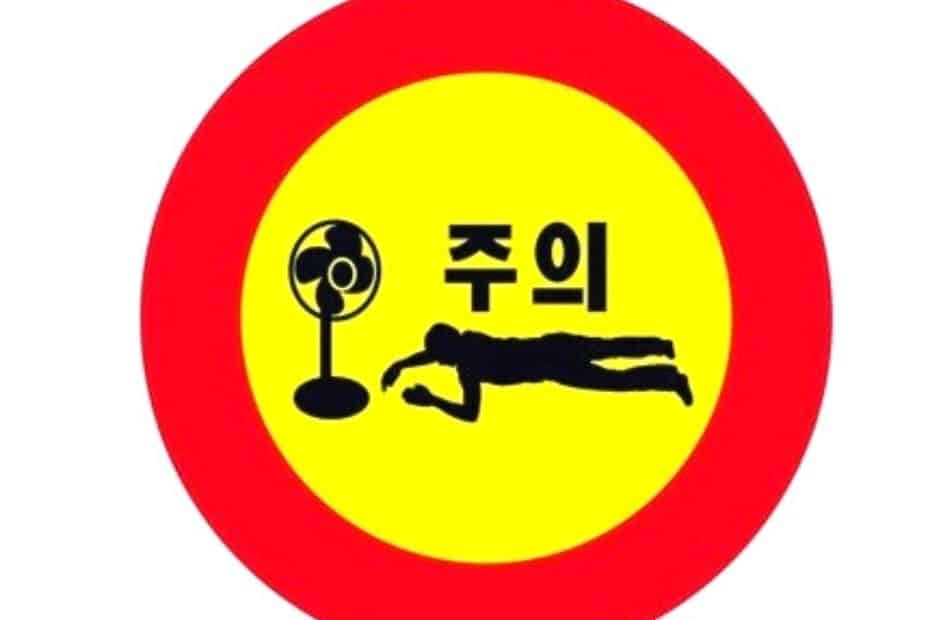
Asphyxiation basically occurs as you breathe over and over with the fan of death pointing at you. It’s suggested that the fan blows the oxygen (O2) away, resulting in more carbon dioxide (CO2) getting into your lungs. The fan is blowing oxygen away from your mouth and you find it harder and harder to breathe. This leads to eventual asphyxiation.
The problem with this idea is that fans actually help the gases in the air mix and the room would have to be completely sealed. Or you sleep in a coffin? In which case you probably have other things to worry about.
4: Asbestos
As you probably know, asbestos is not a good thing to inhale while you’re sleeping (or awake). Taking asbestos fibres into your body leads to diseases such as asbestosis and cancer. In Korea, as in many countries, asbestos was used in construction as it was flame retardant and readily available. Sadly this is still used in some buildings in Korea (including my former school).
Anyway, the dust and fibres produced from asbestos can get into the air and be conveniently blown around by our favourite spinning wheel of death – the electric fan.
This is a real issue and if you’re in a cramped Korean bedroom with a small fan blowing the dust and fibres around and into your face, they could end up in your lungs. However, this is a long term sickness and you’re not going to suddenly wake up (or not) dead the next day from asbestos.
It can take decades for asbestos related cancers to show themselves. If you’re worried about asbestos, you should probably think less about how you’re cooling your house and more about what’s in the walls!
So Is Fan Death Real?
Well, I’m eternally skeptical when it comes to things like this, and there may be a more obvious answer to the emergence of fan death as an urban legend in Korea.
After all, it’s only in Korea where fans can seemingly do you in. Why is that?
It’s no secret that Korea is an island with limited energy resources and in the 1970’s the world was dealing with volatile oil supplies and prices, resulting in high energy costs for Korea. It’s suggested that, as a means to save energy, the Korean government fanned (excuse the pun) the fears of fan death to help reduce energy consumption during summer.
If you spread the word that fans will kill you, fewer people are likely to use them and you’ll save the country a load of energy (and money). That does mean that people have to suffer through the cruel Korean summer heat, but what’s that in comparison to national energy issues?
News coverage like this extract from an article in 1997 hasn’t helped to dispel this noxious myth:
“On Friday in eastern Seoul, a 16-year-old girl died from suffocation after she fell asleep in her room with an electric fan in motion. The death toll from fan-related incidents reached 10 during the past week. Medical experts say that this type of death occurs when one is exposed to electric fan breezes for long hours in a sealed area.“
The Korea Herald, July 1997
However, it was long before this time that fan death became part of the Korean psyche. There are reports of stories of electric fans doing away their innocent users as far back as 1927 (link in Korean) in an article titled “Strange Harm from Electric Fans”.
My Fan Death Myth Conclusion

So, is Korean fan death real, or is it just an urban myth that’s been used to sell papers and save energy? Is it only prevalent in Korea because they’re the only ones wise enough to suspect the bladed beasts of death? Are we all living in ignorance about a mass murder that we look at so fondly, but is ready to kill us in our millions?
I don’t think so.
I’ve slept with a fan (and air conditioning) blowing at my face and I’m still alive. Sure, it’s uncomfortable and can dry your breathing holes, but that’s about as bad as it gets. Or maybe I just like living dangerously?
If you’re Korean, maybe you know more about this than I do and would be happy to share your insights into this phenomenon in the comments?
Read on to find out some of my essential tips to survive Korean fan death.
How To Protect Yourself From Fan Death
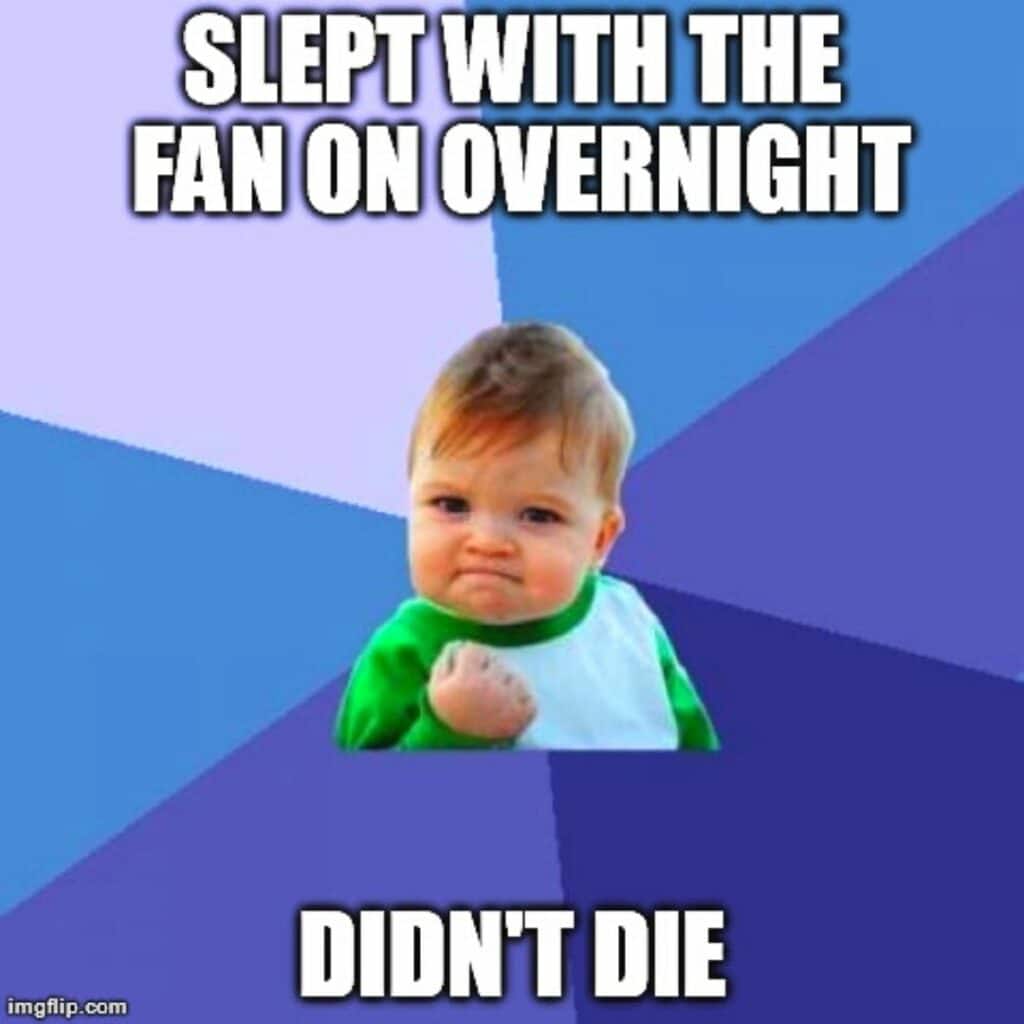
Here are a few tips to help you survive the summer heat in Korea and avoid being killed by the bladed master of death sitting in the corner of the room.
1: Sleep in the kitchen and leave your freezer and fridge doors open to create a naturally cool environment.
2: Sell your apartment and invest in a tent. You’ll always feel fresh and cool when surrounded by nature.
3: Learn Russian and move to Siberia where it’s not quite as hot during summer.
4: Adopt a cute penguin and train it to fan you with a large leaf or paper fan. This will be far more energy efficient and you won’t have to worry about it murdering you in the night. Maybe…
5: For tourists, visit in one of the other Amazing Seasons In Korea.
Should I Be Worried About Fan Death?
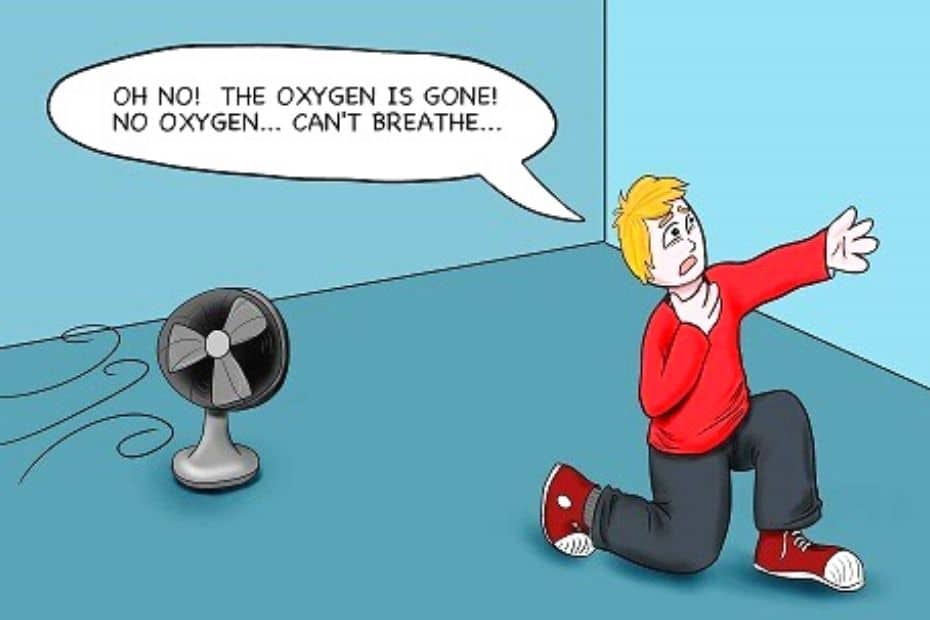
I’d never heard about fan death until I moved to Korea. I don’t think I’ve ever seen any signs in any of the countries I’ve visited warning me not to trust these deceptive machines.
Have you?
As far as I know, it’s only people in Korea who are susceptible to fan death. Therefore, if you live in another country other than Korea, you’re probably ok. However, we’ve all seen how terrors can spread from one country to another, pandemics spreading globally is so 2020s!
If you’re worried, then ditch the fan and learn to deal with the heat. Stay safe, stay cool…but not by an electric fan.
Learn More About Korean Culture
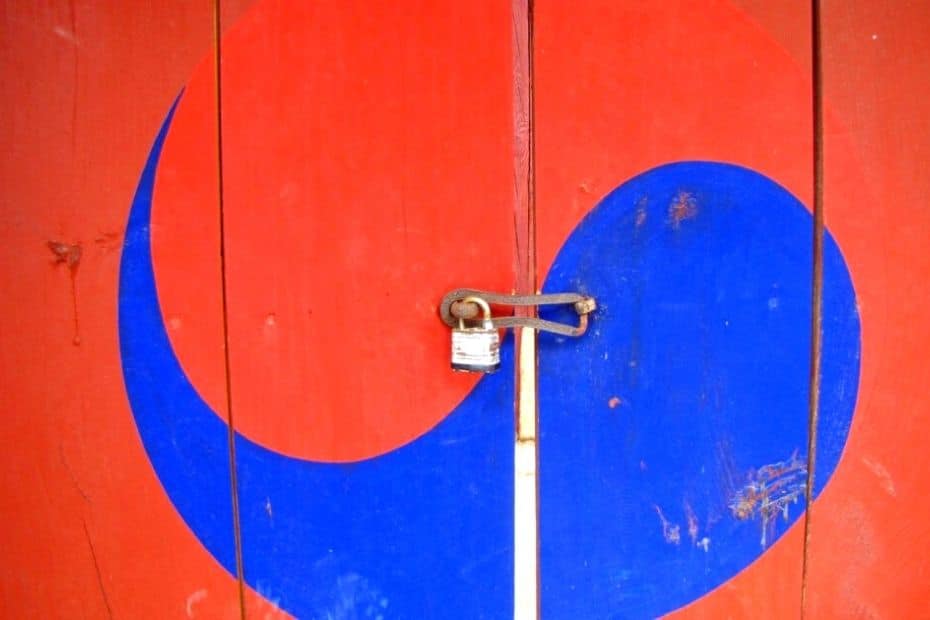
If you’ve enjoyed this article about the unusual myth of Korean fan death and want to know more about Korean culture, then check out some of my other articles. They cover the most interesting facts about South Korea, such as how Koreans have some of the world’s highest IQs, but sleep the least. There’s also a list of amazing Korean novels in English that will show you more about Korea.
Planning to travel to Korea and want to be ready for the culture shock and understand more about what you’ll experience in Korea? Then be sure to read my guide to Korean etiquette and manners. You’ll discover all the ways to avoid being rude and also make friends. And this list of unique Korean experiences will show you what to try, do, eat, experience, and more within Korea.
Thanks, and stay safe from fans!
Liked This? Pin It For Others
If you enjoyed reading this article, then please share this with your friends on Pinterest.
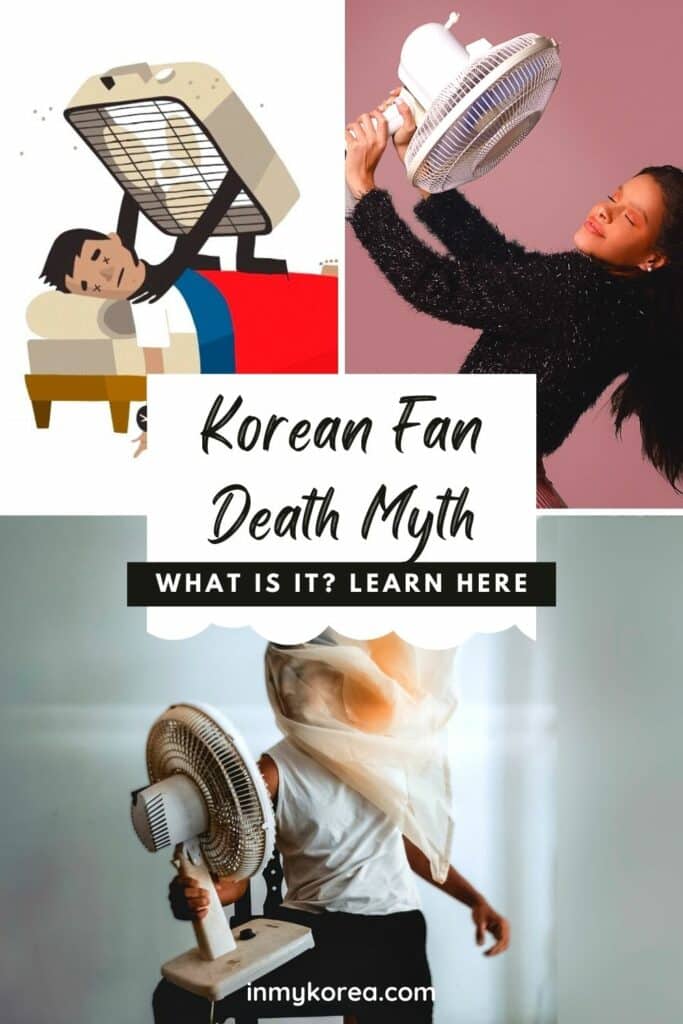
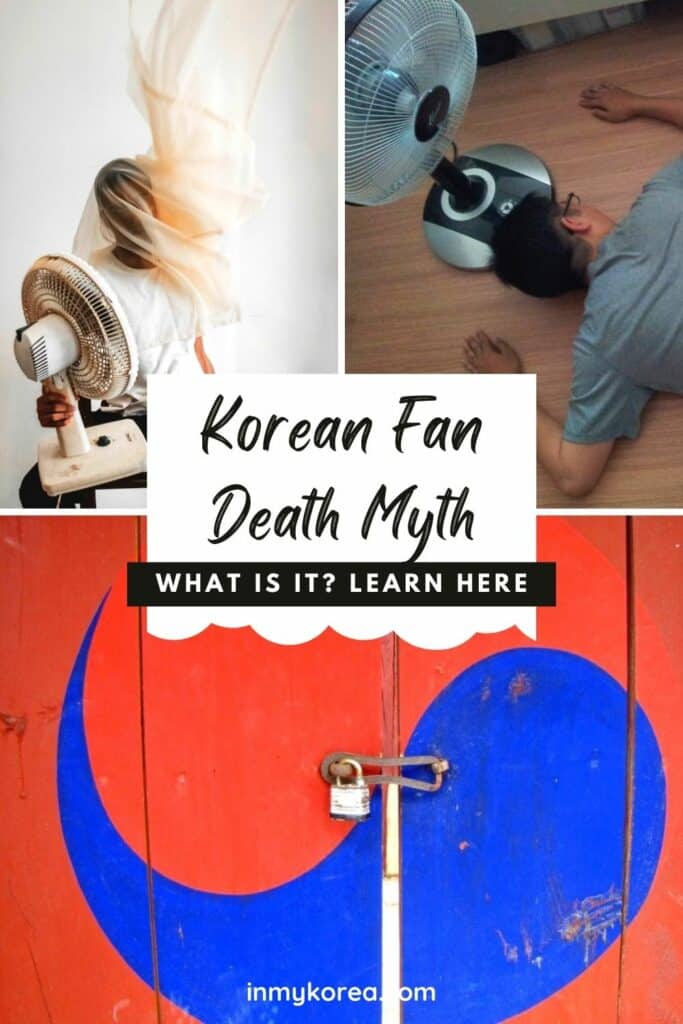
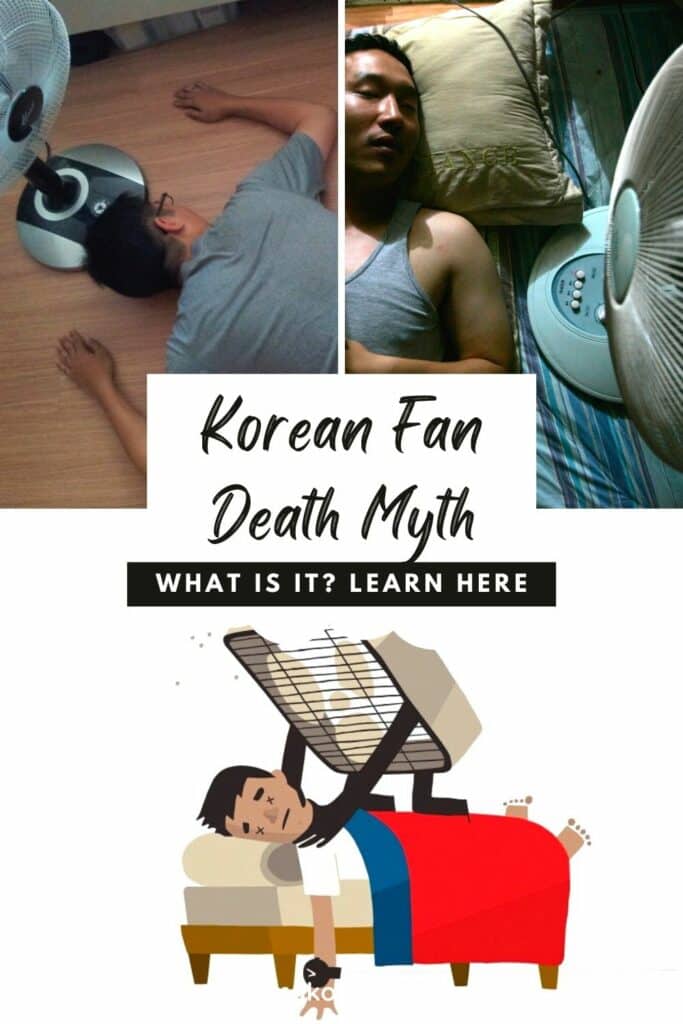






My father is Chinese (not Korean), and he firmly believes in fan death. He is afraid to run an electric fan too close to his body or not oscillating from side to side. This wastes electricity, since the fan must be set to a higher speed since it is farther away. He is also afraid of dying from air conditioners in cars. When I have an electric fan running one foot away from my body, he fears that I am about to die.
I tried to explain to him that fans only move air around, so it is no different than when being outside on a windy day, but he insists that that is not the same as being next to an electric fan.
Thanks for sharing. I guess fan death fear is present in other countries as well (or maybe he heard about it from Korea?). Interesting to hear that car aircon is also an issue! I hope he’s OK with fans eventually.
I found this article bc I was looking for the reason WHY Koreans believe in fan death and where it actually came from. I found this entire article hilarious..and the memes! I first heard about fan death from my relatives after moving to Korea about 10 years ago. I couldn’t help laughing in their face. One of my coworkers was adamant that it’s real and talked about the deaths she’s heard about in the past. How interesting that even the Korean government believes in fan death, as well! In my home in the summer, we sleep with the aircon on all night blowing straight on us. We use a fan when it’s not as hot out. The windows stay closed bc bugs..the doors stay closed bc it stays insulated and gets cooler faster. It’s just common sense.
It’s definitely an interesting topic and surprising how ingrained it is in the culture in Korea. I haven’t heard of anyone dying from it this summer, so maybe we’re safe at last?
Another explanation I’ve come across is that people claim it as the cause of death of a relative instead of admitting they committed suicide, because of the shame/stigma traditionally associated with that. Kind of like how people in the West would say “He accidentally shot himself while cleaning his gun.”
On of the explaination for death by fan myth is doctors wrote it in the families copy of a death certificate as a cover for the person committing suicide which is a shameful thing in Korea.
Interesting. Hadn’t considered that. Could definitely be something that is less shameful than the real cause of death. Similar to how Korean media often won’t use the word ‘suicide’ when a celebrity dies.